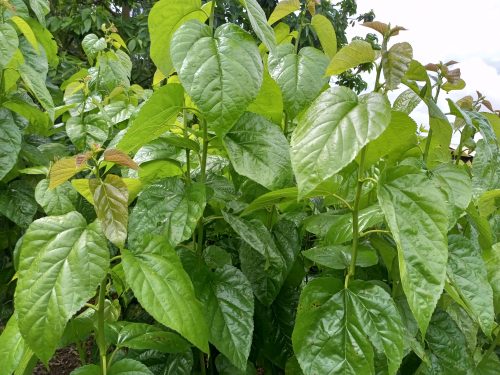National Certificate in Agriculture (NCA)
July 23, 2024Electrical Engineering and Installations
July 23, 2024NATIONAL CERTIFICATE IN WELDING AND FARICATION (NCWF)
This National Certificate in Welding and fabrication (NCWF) curriculum is aimed at producing welders who are relevant to the industry and world of work. It is learner-centered and competence-based and emphasizes acquisition of skills through practical teaching and execution of projects

- DURATION...........................2 Years
- Accreditation......................DIT & UBTEB
- Tuition
- International Students: UGX 800,000 (USD 223) per semester
- Ugandans / East Africans / Refugees: UGX 420,000 per semester.
- Accommodation/Hostel/Meals
- ........UGX 480,000 per semester
The competences that the learner is expected to acquire are clearly spelt out in the modules covered in each of the two semesters of an academic year. The modules offered in this course are packaged in a manner that will enable the learner to attain particular skills required for performing tasks at any level of the respective year of study.
Welding and fabrication focus on the manufacturing and welding of metal parts using processes such as light-duty welding, non-fusion welding, and cutting operations, including soldering, brazing, and gas cutting. It also encompasses structural and pipe welding and fitting.
The assessment is categorized in four packages/modules basing on the competences that a learner desires to achieve for a given trade. These include;
- Module 1Light duty welding (Non critical)
- Module 2: Non fusion welding and cutting operations (soldering, brazing and gas cutting)
- Module 3: Structural/Pipe welding and fitting (Heavy duty)
- Module 4 Welding inspection
On completion of modules 1, 2, 3 and 4, the trainees are expected to go for industrial training as indicated for each of these modules. Industrial Training, which comes at the end of each academic year, is aimed at bridging the gap between institutional-based training and the world of work.
In addition, the Real-Life Project is aimed at equipping the learner with the core hands-on skills and techniques in Welding and fabrication.
The learners also study Applied Technician’s Mathematics module which is aimed at improving learner’s ability to judge and make decisions, estimate and cost materials and labour, analyse data and understand trends in the world of work.
There is also Entrepreneurship Skills module which provides the learner with skills of starting up, profitably managing and sustaining an enterprise in an ethical manner.
Skills and competencies acquired by the learner
The course is aimed at producing welders who are able to:
- Design, cut, shape and join metals by spot welding such as doors, windows, gates and burglar frames.
- Lay out, fit, and fabricate metal components to assemble structural forms, such as machinery frames, bridge parts, and pressure vessels, using knowledge of welding techniques, metallurgy, and engineering requirements.
- Lay out, assemble, install, and maintain pipe systems, pipe supports, and related hydraulic and pneumatic equipment for steam, hot water, heating, cooling, lubricating, sprinkling, and industrial production and processing systems.
- Fabricate, lay out, position, align, and fit parts of structural metal products.
- Join together components to assemble fabricated metal parts using soldering iron, torch, or welding machine and flux.
- Cut materials professionally into pieces of specific dimensions and shape.
- Inspect weldments and welding related activities to ensure that they comply with quality and safety criteria
- Prepare reports, budgets and operation plans.
- Observe safety, health and welfare.
- Initiate and manage small business enterprises
The trainee to be assessed in any of the certificate modules in Welding and fabrication, he /she should have
- a) A minimum of Uganda Certificate of Education (Ordinary level)
- b) Holder of Uganda Junior Technical Certificate (UJTC), Community polytechnic Certificate or National Junior Vocational Certificate from a recognized institution OR its equivalent in Technical /Vocational education.
There is an upward academic growth on completion of the certificate to diploma and eventually a degree in the relevant field. The trainees shall be awarded certificates on completion of each given set of modules and on completion of all the modules along with industrial training, they will be awarded a National Certificate in Welding and fabrication (NCWF) in a period of two years
This section describes the modules, expected learning outcome and awards before a student receives a final National Certificate in Welding and fabrication (NCWF)
NO | MODULES | TRAINING OUTCOME | AWARDS |
1 | Light duty welding (Non critical) | Design, cut, shape and join metals by spot welding such as doors, windows, gates and burglar frames. | Certificate of Competence in light duty welding |
2 | Non fusion welding and cutting operations (soldering, brazing and gas cutting) | Join together components to assemble fabricated metal parts using soldering iron, torch, or welding machine and flux. Cut materials professionally into pieces of specific dimensions and shape. | Certificate of Competence in Non fusion welding and Gas cutting |
3 | Structural/Pipe welding and fitting (Heavy duty) | Lay out, fit, and fabricate metal components to assemble structural forms, such as machinery frames, bridge parts, and pressure vessels, using knowledge of welding techniques, metallurgy, and engineering requirements. Lay out, assemble, install, and maintain pipe systems, pipe supports, and related hydraulic and pneumatic equipment for steam, hot water, heating, cooling, lubricating, sprinkling, and industrial production and processing systems. Fabricate, lay out, position, align, and fit parts of structural metal products | Certificate of Competence in Structural/Pipe welding and fitting |
4 | Welding inspection | Inspect weldments and welding related activities to ensure that they comply with quality and safety criteria | Certificate of Competence in Welding inspection |
CAREER OPPORTUNITIES
- Welder
- Bench hand joiner
- Workshop technician
- Production technician
FACILITIES AVAILABLE
The Institute has all the necessary facilities for conducting training programmes. The
important facilities are listed below:
- a) A well-equipped workshop facility
- b) Machinery with advance technologies; Welding machine sets, grinders, anvil blocks, drilling machines, gas welding machine sets and others.
- c) Different type of benchwork tools
- d) Well-equipped class rooms facilities,
- e) Well qualified and experienced faculty,
- f) 24 hours Security in the Campus.
Admission Requirements
Welding and fabrication course at TRIDI is offered to a student who provides the following requirements:
- UBTEB admission is for the candidates has sat the Uganda Certificate of Education (UCE) Examination or its equivalent and obtained a certificate at the minimum level of pass in three subjects.
- For DIT, the candidate must have primary training and must have PLE certificate or its equivalent.
Fees for the Programme
The fees structure for the programme is as follows:
Tuition
- Ugandans / East Africans / Refugees shall pay tuition of UGX 550,000 per Semester.
- International students shall pay tuition of UGX 800,000 (USD 223) per Semester.
Examination fees: The fees are fixed by UBTEB and DIT
Accommodation/Hostel/Meals: Hostel/meals are available at UGX480,000/= per Semester. However, students can also have their own private accommodations.
For More Information, Contact
Tropical Institute of Development Innovations
3km along Kalagi – Gayaza Road, Nandudu Place,
Kyabakadde Village, Kyampisi Sub County, Mukono District
P.O Box 397 Mukono, Uganda.
Email: tridiuganda@gmail.com
Head of Department/Program: Eng. Najim Kassie, Email: kassie.n77@gmail.com
Executive Director: Clet Wandui Masiga, Email: c.w.masiga@gmail.com
Tel: +256 700 104199
+256 782 649415
+256 750 584617
+256 772 323481
+256 200 911 090
+256 777 284 388


